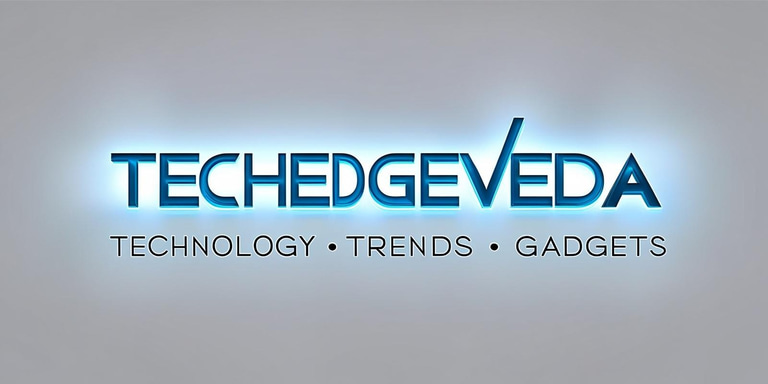
Quantum Computing Is Booming: What’s Fueling It and What’s at Stake
Quantum computing is making huge strides, with trailblazing innovations from Microsoft and Google poised to revolutionize industries like healthcare, energy, and materials science. From unlocking new medical treatments to powering clean energy solutions, this cutting-edge technology promises to tackle challenges that traditional computers can’t. But with obstacles like scalability and error correction ahead, the journey to quantum’s full potential is just beginning.
TechEdgeVeda Editorial
3 min read


A new era of computing is quietly taking shape — and it’s not just faster, it’s fundamentally different. Fueled by breakthroughs from tech giants like Microsoft and Google, quantum computing is no longer a distant dream but an accelerating reality, promising to unlock problems classical computers could never touch.
With chips like Microsoft’s Majorana 1 and Google’s Willow, the quantum race is heating up, powered by exotic materials, topological states of matter, and revolutionary architectures. These innovations are laying the groundwork for machines with millions of qubits — the magic number needed to tackle complex, real-world problems across chemistry, climate, health, and energy.
Fueling the Quantum Fire
What’s behind this sudden burst of quantum momentum?
The answer lies in a fusion of deep scientific breakthroughs and strategic urgency. Microsoft’s Majorana 1 is the first quantum chip built on a topological core, a design inspired by an entirely new state of matter that protects quantum information from environmental noise — a notorious quantum challenge. Meanwhile, Google’s Willow chip shows that scaling up qubits reduces error, potentially solving one of the biggest bottlenecks in the field.
But beyond the hardware, it’s AI that’s pouring gasoline on the fire. Quantum computers and AI are becoming natural allies. Quantum systems can generate novel, high-fidelity datasets for training AI — especially in fields like chemistry and biology, where data is scarce or too complex to simulate. As Microsoft’s technical fellow Matthias Troyer put it, “The quantum computer teaches the AI the language of nature.”
Governments are also stepping in. Programs like DARPA’s US2QC are supporting moonshot efforts to build fault-tolerant, utility-scale quantum computers within years — not decades. The race is no longer just scientific — it’s geopolitical.
Where Quantum Will Hit Hardest
So, where will quantum computing matter most? The answers are both exciting and transformative:
Healthcare & Drug Discovery: Quantum computers can simulate molecular interactions with atom-level accuracy. Imagine drug candidates tailored in silico, with quantum models predicting how they’ll behave in the body before human trials begin.
Materials Science & Energy: Self-healing materials, ultra-efficient batteries, and cleaner catalysts are all within reach. Microsoft envisions quantum systems helping break down microplastics, while Google targets fusion energy modeling to finally crack the power of the stars.
Agriculture & Food Security: Quantum simulations of enzymes and soil chemistry could supercharge crop yields or enable sustainable farming in hostile climates.
Climate Science: The ability to model Earth’s ecosystems and atmospheric chemistry at quantum precision could unlock bold climate interventions or carbon-negative innovations.
AI & Machine Learning: AI models may soon be co-developed with quantum simulations, trained on data that captures nature’s most elusive behaviors — boosting creativity, precision, and performance in ways we’re only beginning to imagine.
Challenges: What Humanity Must Overcome
Despite the hype, quantum computing still faces formidable hurdles. Chief among them:
Scalability: Moving from dozens to millions of stable qubits demands near-perfection in material science. Microsoft’s atom-by-atom approach shows promise, but the engineering task is colossal.
Error Correction: Quantum states are fragile, and any noise can ruin a calculation. Fault-tolerant systems require advanced quantum error correction algorithms, still in early development.
Talent & Infrastructure: The field needs more experts in quantum physics, materials science, and quantum software — and datacenters capable of operating at near absolute zero.
Ethics & Access: Like AI, quantum computing could be misused if concentrated in the hands of a few. It could shatter today’s encryption systems, redefine warfare, or exacerbate tech inequality if not democratized.
The Quantum Future Is Closer Than You Think
A century after quantum mechanics redefined physics, quantum computing is poised to redefine the future. It's not just another computing paradigm — it’s a new way to think, design, and discover.
From healing cracked bridges and eradicating global hunger to powering AI that understands the universe’s code, the quantum revolution is inching from science fiction to daily life.
But the final leap — from potential to power — will demand global cooperation, bold vision, and responsible innovation. The clock is ticking. And the qubits are rising.
#QuantumComputing #FutureTech #AIandQuantum #QuantumRevolution #MicrosoftMajorana1 #GoogleWillow #QuantumAI #ErrorCorrectedQubits #TechEdgeVeda
